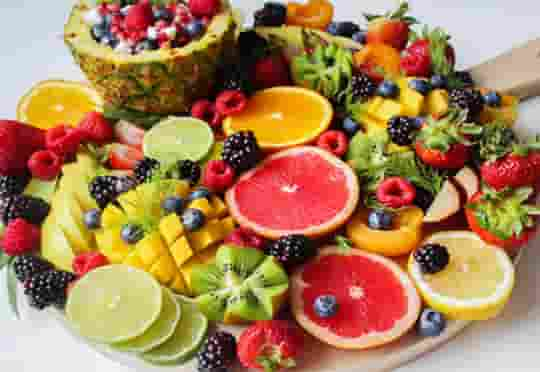The nutrients that may halt one of the deadliest cancers in men and speed up their recovery after radiotherapy.
Foods rich in certain micronutrients along with colourful fruits and vegetables may fend off prostate cancer and minimise the damaging effects of radiotherapy.
Scientists from the University of South Australia reveal that prostate cancer patients are more likely to have low blood levels of selenium, lutein, lycopene, alpha-carotene, and beta-carotene.
They found that men with low levels of these micronutrients are at twice the risk of prostate cancer.
In contrast, higher blood levels of iron, sulphur, and calcium doubled the risk, a result of the Western diet which is deficient in plant foods and rich in meat.
Nearly 50 percent of prostate cancer patients undergo radiation therapy, increased DNA damage was linked to selenium and lycopene deficiency.
A diet rich in green leafy vegetables and colourful fruits containing carotenoids (lutein, zeaxanthin, lycopene, alpha-carotene, and beta-carotene) provides many health benefits such as reduced cancer and heart disease risks.
Examples of carotenoid-rich foods are kale, spinach, broccoli, carrots, sweet potatoes, pumpkin, squash, tomatoes, papayas, grapes, melons, and peaches.
Foods rich in selenium include brazil nuts, cashew nuts, eggs, pumpkin seeds, tuna, sardines, prawns, baked beans, and brown rice.
Dr Permal Deo, study co-author hinted that the best way to obtain selenium and lycopene from foods is from natural sources as opposed to supplements:
“Our recommendation is to adopt a Mediterranean diet enlisting the help of a dietician because people absorb nutrients in different ways, depending on the food, the digestive system, the person’s genotype and possibly their microbiome.”
The research found that prostate cancer risk was increased among men with lycopene levels lower than 0.25 micrograms per millilitre and selenium levels lower than 120 microgram per litre, also they were more vulnerable to radiotherapy.
Prostate cancer is one of the deadliest cancers in men but until now the impact of nutritional deficiencies on this disease have not been thoroughly investigated.
Dr Deo added:
“There is strong evidence that being overweight and tall increases the risk of prostate cancer.
Diets high in dairy products and low in vitamin E may also increase the risk but the evidence is less clear.”
Wheat germ oil, sunflower seeds, almonds, hazelnuts, peanuts, avocado, Swiss chard, mango, kiwifruit, salmon, and eggs are amongst those foods high in vitamin E.
The studies were published in the journal Cancers (Dhillon et al., 2023; Dhillon et al., 2023).

